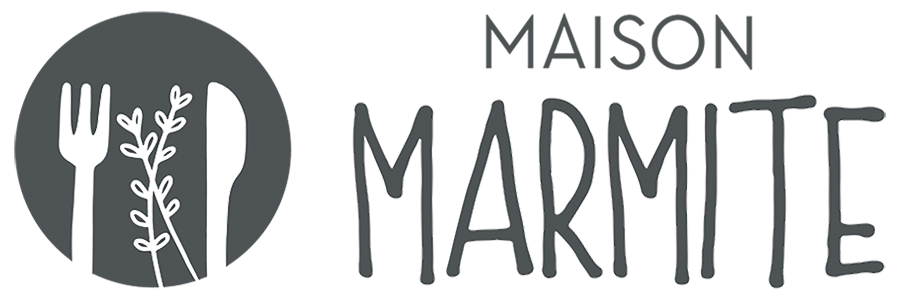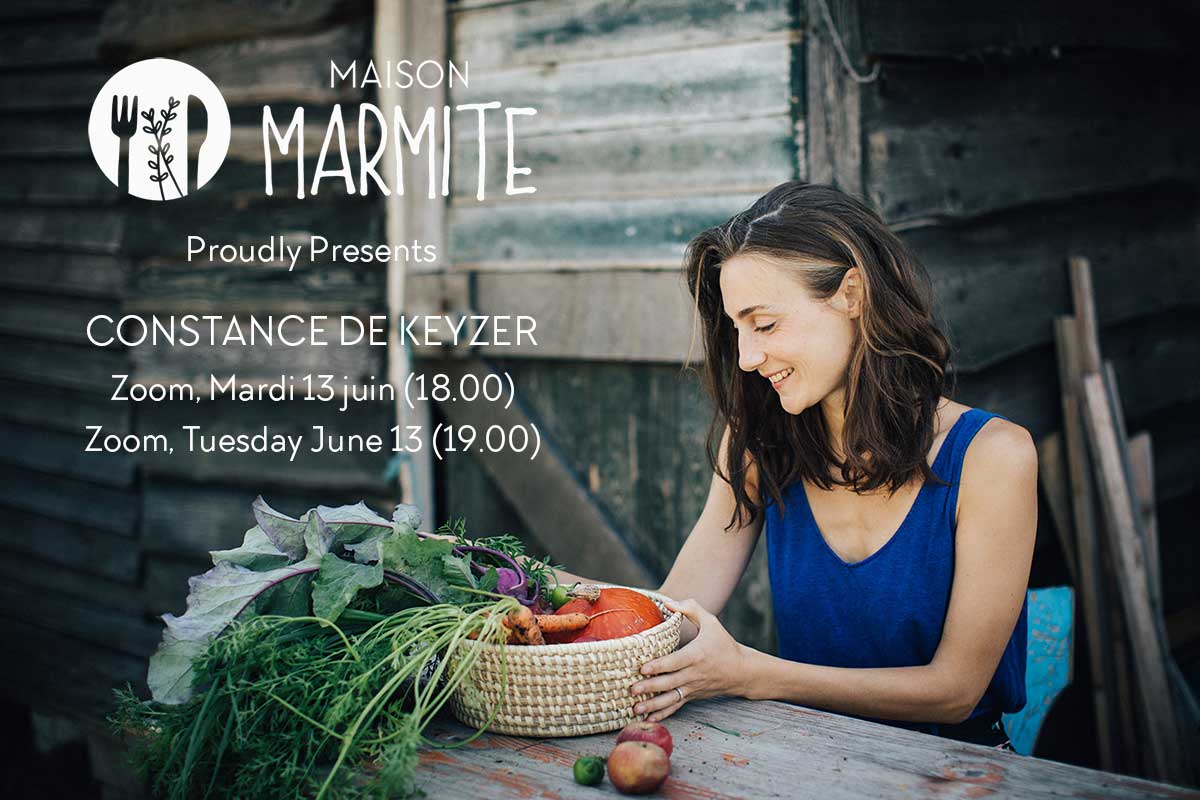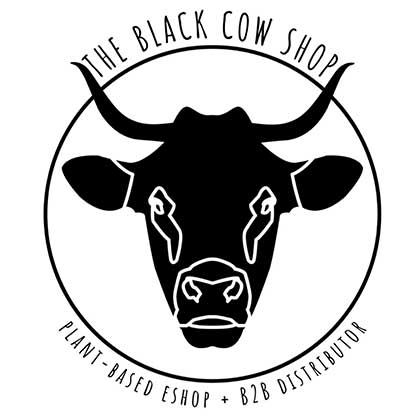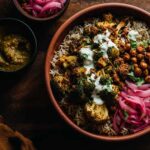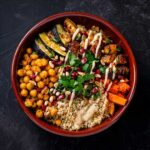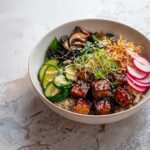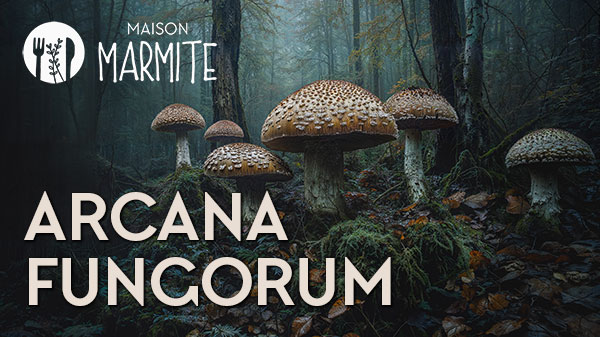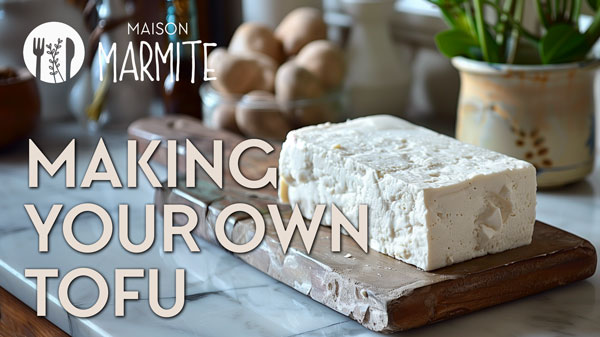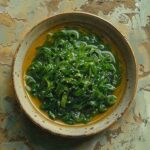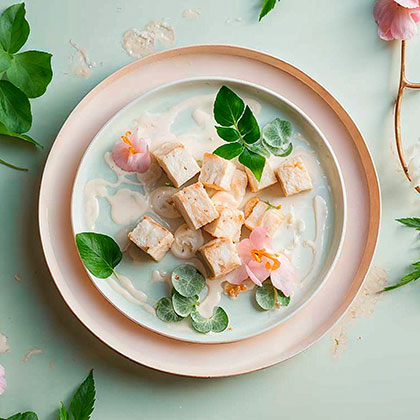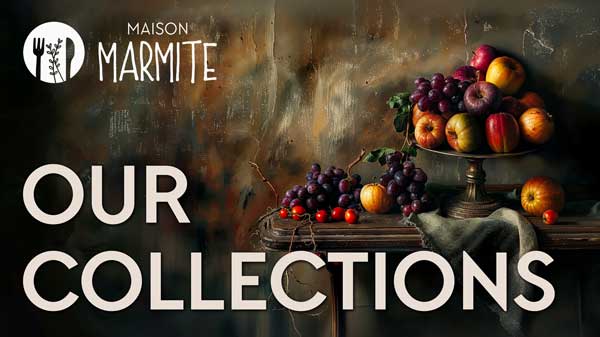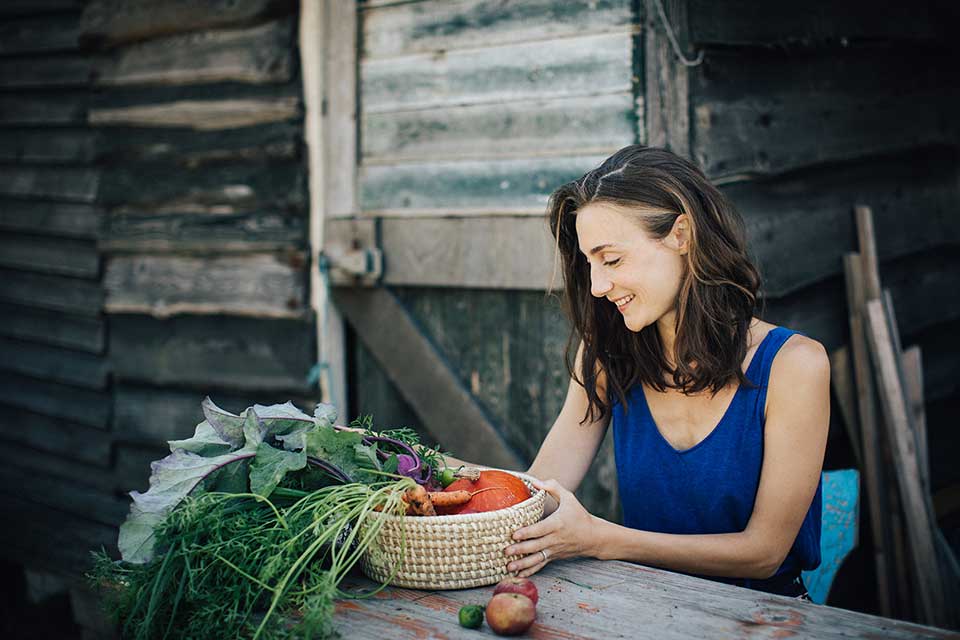
Constance De Keyzer, a long-time and impassioned advocate for healthful nutrition, is a dietician who specialises in a number of very specific domains, such as paediatrics, perinatal nutrition and veganism. Convinced that food is ‘thy medicine’ – both as a prophylactic as well as a therapeutic – and that it is of essential importance at all ages; she helps adults, and even entire families, achieve a more balanced nutritional regimen.
Constance will be regularly contributing content for Maison Marmite, such as articles related to vegan nutrition and it’s with tremendous joy that we now introduce you to this unique and compassionate human being.
Maison Marmite: Can you tell us how you ended up becoming a dietician…
My name is Constance De Keyzer; I’m very curious by nature and I‘m also quite big-hearted. Since I had a penchant for languages and communication, I studied Public Relations, followed by a Masters in Labour Sciences. Only after that did I discover my passion for educating so, I pursued a teaching qualification for upper secondary education in Political ans Social sciences and began a 13-year long career as a secondary school teacher, where I taught over 20 different subjects.
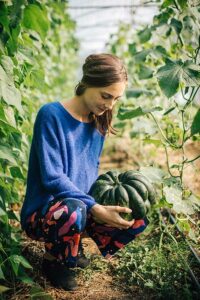 Maison Marmite: What made you take up veganism?
Maison Marmite: What made you take up veganism?
I’ve always had a very strong sense of ecological conscience. During my years as a teacher, I became increasingly more aware of the impact of my dietary habits on the planet and its population. I first became pescetarian in 2008, and in 2014 I went lacto-ovo-vegetarian. That same year, I also quit eggs and dairy, after having seen a documentary about the impact of the dairy industry. Aside from the impact on the planet and the animals, I also became aware that food distribution would be a lot more equitable and would most likely contribute, at least in part, to the alleviation of world famine, if less animal products were consumed. I’m vegan because I think our planet deserves a better future, because I want a world without animal suffering and where social justice actually exists.
Maison Marmite: And what, eventually, led you to nutritional sciences?
In 2017, after a very healthy vegan pregnancy, I had my daughter and that’s when doubts started clouding my mind. Will I be feeding her properly? How will this affect her growth? Am I really doing the right thing? As you can imagine, I got more than my fair share of side-ways glances form the medical professionals, not to mention the innumerable questions from the grandparents (well intentioned but very perturbed, nonetheless). I’ll never forget the paediatrician at the maternity ward who, after becoming aware of me buying newborn formula made with rice protein hydrolysates, while I was waiting for my own milk flow to start, told me the following: “Vegan children don’t grow, don’t put on weight and are less intelligent than others. I will have warned you.” She never even allowed me to respond and just walked out, leaving me in tears.
A year later, I decided to continue my nutritional studies. I wanted to profoundly understand nutrition in order to feed my daughter correctly and, at the same time, help other parents in the same situation. Three years into it, I studied ten pregnant women on a vegan diet, for my dissertation, nominating this as my area of expertise. I then specialised further in paediatric and perinatal nutrition; my dissertation’s focus, this time, was on creating balanced meals for vegan kids.
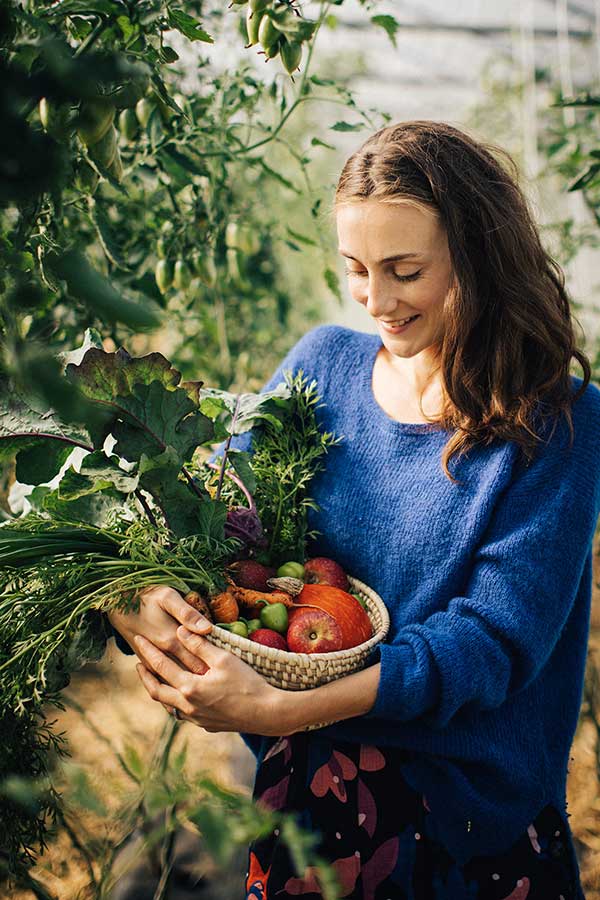 Maison Marmite: What are the differences between an adult and kids vegan regimen?
Maison Marmite: What are the differences between an adult and kids vegan regimen?
There are indeed a few things to consider because children, proportionately, need more energy than adults do. Therefore you need to limit fibre (which is very filling), avoid salt (it’s dehydrating) and products that could potentially contain lots of toxins (rice, algae, complements farfelus ), as well as anything highly processed which has no business being in a child’s diet (or anyone’s for that matter ;-)).
Maison Marmite: Do pregnant women need to take certain precautions?
Pregnant women should avoid products that may present microbiological risks, such as sprouted grains/legumes or unwashed raw produce. It’s important that they also eliminate or, at least, seriously limit, their intake of foods that might contain toxins like algae and rice, as well as cutting down on salt (it reduces calcium uptake). Pregnancy is also a time to practice good habits in preparation for breastfeeding, when Vit. A is of the utmost importance.
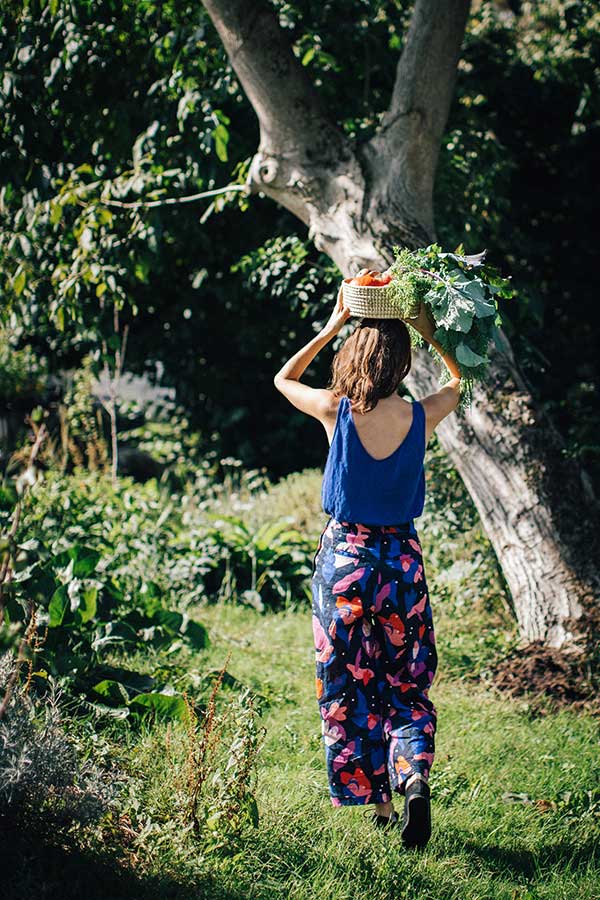 Maison Marmite: Does a vegan diet make you lose weight?
Maison Marmite: Does a vegan diet make you lose weight?
It all depends on how you go about it. If you consume mainly (ultra-) processed, greasy foods (typically vegan cheeses, vegan steaks or burgers, or cakes and biscuits) and you’re not providing yourself with a balanced diet, you won’t be losing weight.
If, on the other hand, you decide to seek out a balanced way of feeding yourself, with lots of fruits and veggies, whole grains and legumes, and if you place variation centre-stage, it’s quite likely that you will most likely lose weight… Everything depends on previous eating behaviours and the forging of new habits…
Maison Marmite: Is a vegan diet suitable for all life stages?
Yes, it can be adapted for all stages of life, as long as it’s varied, balanced and supplemented as needed. For people who suffer from IBS and who are hypersensitive to legumes, however, it could become a bit more complicated but, for those who are adamant, it’s possible!
Maison Marmite: What are the things to look out for when adopting a vegan diet?
Variety: having a wide variety of fruits, vegetables, grains, legumes, nuts and seeds, and oils which contain all the necessary micronutrients.
Balance: eating everything is great, especially legumes.
Vitamine B12 and D are the only vitamines that aren’t present in vegetables. It’s therefore important to supplement those; vitamine D3, in particular, if you don’t spend much time outdoors or if you use sunscreen.
Maison Marmite: Do you require a blood test be done for your patients?
It’s certainly interesting to know what the biological status of a new patient is, of course. Food is obviously the best source of micronutrients but, B12 and D-levels need to be checked on a regular basis. There are other micronutrients that can be lacking and those include iron, zinc, iodine and omega-3’s.
We’re very excited to invite you to meet Constance for a webinar, organised by Maison Marmite and dedicated to vegan food; it’s scheduled for Tuesday 13 June, from 18:00 till 19:00 (webinar in French) and from 19:00 till 20:00 (webinar in English). It’s entirely free and, after having explained the basics of veganism, Constance will gladly answer any questions you might have. In order to participate, simply complete the form below.
You can check out Constance’s work on her website, fourchettecuriuse.be, but also on Instagram and on Facebook.
When transitioning from an omnivorous or vegetarian diet to a vegan lifestyle, cheese often remains the final challenge to overcome. This transition will now be...
The benefits of Indian spices Spices are used in all cuisines but, Indian cuisine has to be the most prolific. In India, spices are introduced...
